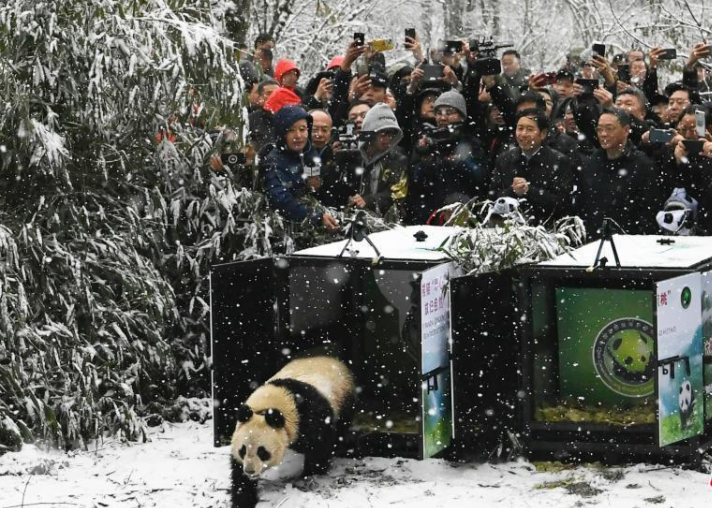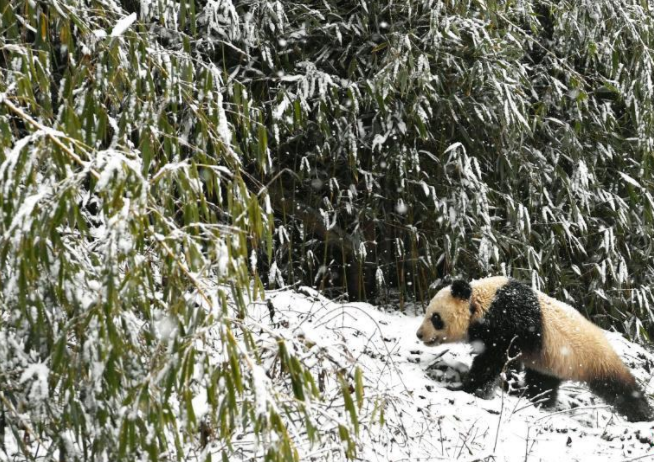Two Pandas Released into the Wild After Being Raised in Captivity

The two pandas, named Qinxin (“Heart of Qin”) and Xiao Hetao (“Little Walnut”), were released into the wild on December 27 following final physical examinations including blood tests, ultrasound examinations, parasite examination, x-rays, feces analysis and body measurements.
They were deemed fit for release into Longxi-Hongkou National Nature Reserve in southwest China after systematic wildlife training, during which they are said to have developed relatively strong survival instincts, since their birth in July 2016.
They have mastered basic skills including walking, climbing, finding shelter, and more, according to CCTV.
“Through our more than two years of training, ‘Qinxin’ and ‘Xiaohetao’ have showed strong abilities in gathering food and avoiding danger in the wild. They have met the basic requirements to be released into the wild,” said Liu Xiaoqiang, head of the animal management department of the Hetaoping Survival Training Base of the China Conservation and Research Centre for the Giant Panda.

Zhang Hemin, the director Liziping Natural Reserve, stated in a previous report that, “the wild is the only natural habitat where giant pandas really want to live, survive and multiply.”
Qinxin and Xiaohetao are the tenth and eleventh captive-bred giant pandas that have been released into the wild and will be tracked via GPS devices after their release.
However, there are risks associated with such a move. China first attempted to release a giant panda into the wild in 2006 but the animal, named Xiang Xiang, was found dead after one year out of captivity.
Another, Xue Xue, died just 42 days after her release in 2014. He Sheng, a 3-year-old male panda, died in April 2017 after being released in March last year. An examination concluded that the panda had been attacked by an unknown animal, with the wounds bringing a bacterial infection that resulted in fatal blood poisoning.
The World Wide Fund for Nature (WWF) is also involved in panda conservation. The overall efforts will benefit many other rare species of animals and plants that live side-by-side with the pandas, the WWF says, including the endangered takin, golden monkey, red panda, and crested ibis.











